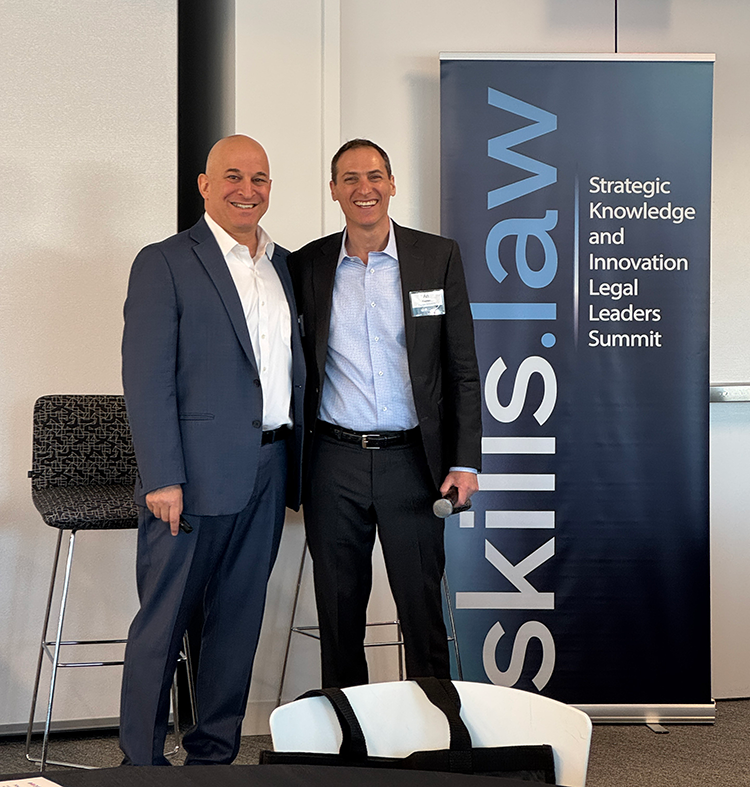AI Adoption Trends in Law Firms: Insights from the 2025 SKILLS Summit
By Ari Kaplan, Legal Industry Analyst
Introduction
The Strategic Knowledge & Innovation Legal Leaders’ Summit, held on March 27, 2025, in New York City, brought together prominent professionals within large law firms to discuss innovation and the impact of artificial intelligence (AI) on the legal sector.
Overview of the SKILLS Survey
During the summit, the SKILLS survey revealed critical insights gathered from approximately 100 legal innovation professionals. Predominantly from large law firms along with participation from firms of all sizes focusing on innovation, the survey documented the state of AI utilization in the legal industry. Key demographics included 70 respondents from the United States, with additional input from the UK, Canada, and international firms.
Generative AI Deployment in Law
The survey highlighted that the average responding firm has 18 active generative AI solutions in operation, along with six currently in pilot testing and 22 under consideration. The major applications include:
- Contract drafting
- Time entry
- Due diligence
- Legal research
AI Adoption Policies and Strategies
Almost all respondents (99%) indicated their firms have AI usage policies in place. However, the development of comprehensive AI strategies and dedicated task forces lagged behind, with only 92% and 87% respectively reporting establishment of these frameworks. This disparity highlights the pressing need for law firms to cultivate robust guidance and protocols around AI deployments.
Leadership’s Role in AI Integration
The summit underscored the crucial role of effective leadership in driving AI integration. Recommendations included:
- Consistent communication from leadership throughout the organization.
- Ensuring innovation leaders possess direct reporting lines to senior executives.
- Encouraging cross-functional leadership to enhance project value.
Innovation Teams and Responsibilities
Data from the survey indicated that 59% of innovation teams are primarily tasked with AI strategy implementation, followed by knowledge management and IT departments. This distribution reflects a shift in focus from mere technological adoption to holistic transformation within firms’ operational strategies.
Generative AI Trends and Client Engagement
A notable trend emerging from the summit is the development of internal generative AI tools, with over two-thirds (73%) of participants indicating their firms have created or implemented such technologies. Additionally, discussions around client-facing applications indicate a historical analog to earlier mobile application trends in law firms.
Challenges in AI Adoption
Despite the advancements, adoption rates remain low. Only 22% of firms reported a high level of usage for their AI tools. Challenges cited include cost, effectiveness, and competition from superior alternatives. Participants emphasized the importance of starting AI initiatives with enthusiastic team members to foster a successful adoption culture.
Conclusion
The summit concluded with a recognition of the imperative for law firms to adapt swiftly and effectively to the fast-evolving landscape of AI technology. By embracing innovative strategies, refining policies, and ensuring cohesive leadership, firms can navigate the challenges and opportunities presented by generative AI in the legal domain.

